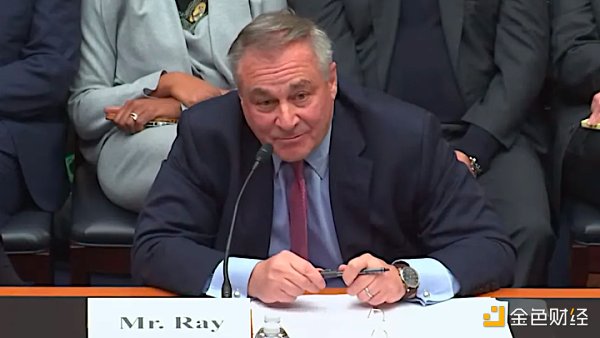Aragon, DAOstack, Colony, Moloch: Comparison of four typical Ethereum decentralized organizations
Author: Daniel Kronovet
Compile: Comunion Translation Team
This paper mainly compares the basic methods of four typical Ethereum decentralized autonomous organizations projects.
prelude
What is a Decentralized Autonomous Organization (DAO) decentralized autonomous organization?
- Babbitt's first digital asset security incident report
- To launch a $1 billion encrypted hedge fund, Elwood Asset Managemen intends to
- Sideways shock, waiting for the market to choose direction again
Here is a simple definition (which may not be perfect): “Organization members coordinately deploy shared resources in a decentralized organization with a Censorship Resistance to achieve a set of common goals.” Definition, the simplest understanding of a DAO organization can be a multi-signature wallet: where a single member can withdraw a certain amount, multiple members can extract a larger amount together.
For a group of backpacking friends, multi-signatures may be sufficient; but for organizations that need to coordinate more resources to achieve greater goals, more additional mechanisms are needed because more will be needed to think and solve. Question: How much penetration should the boundaries of the organization have? How much influence should each participant have? How to protect individuals from the bad behavior of others? How easy is it to participate in the organization?
For some people, these issues are extremely tempting, so many important projects that have emerged in recent years have tried to answer these questions. The similarities or differences between these projects will be explored in this article.
The content is based on my knowledge of these projects and their technical documentation: most of them come from technical documents I have read and conversations with project team members.
01 Aragon
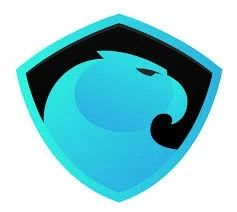
Aragon
"Free definition organization"
Aragon is arguably the most compelling DAO project, the largest of the projects discussed in this article (in terms of Twitter's impact). Named after Aragon, Aragon is one of the autonomous communities of Spain's 17 autonomous regions, meaning freedom and unstoppable borderless.
The Aragon team believes that the current form of organization is heavily subject to the erratic jurisdiction of real-world justice: such as the thieves' government, the unfair judicial system, etc. If the organization can be liberated from these jurisdictions, they will be able to reach their full potential.
Technically, Aragon's most notable is its licensing and transaction forwarding system, which allows for a very wide range of modules to be securely connected together. Its licensing system allows only specific block numbers or conditions to provide feedback to external sources; its forwarding system is based on a custom scripting language: evmScript.
Unlike the other projects discussed in this article, Aragon is more focused on providing a secure and versatile backbone for the formation of general organizations, rather than building products around specific decision mechanisms. On the one hand, this is very practical and attractive: by leveraging the foundation built by the Aragon team, end users only need to use the tools provided by Aragon to quickly form an organization that meets their specific specifications. On the other hand, you can also think about a question. Is it enough to move the organization to the blockchain? You may be surprised. A visionary project like Aragon does not seem to have a clear organizational form and decision-making mechanism. At least the default view of "DAO" is a decision-making mechanism that represents no hierarchy and decentralization, but Aragon teammates made it clear that Aragon is currently not defining what kind of organization to build, using Aragon to build a Authoritarian organizations like Apple or Microsoft are also available.
It can be seen that the Aragon team is focused on bringing the organization into the cyberspace. There is no mechanism to restrict it. But only building a common module and ignoring the mechanism construction will have advantages and disadvantages for Aragon in the long run. People often say, "Going the old road, "Aragon may not be suppressed by jurisdiction, but it may be limited by the outdated decision-making mechanisms (such as voting on arbitrary text strings), which will make it difficult for organizations to cope with future challenges. . In general, Aragon's investment in modularity can make it easier to build a developer ecosystem and support future new decision-making mechanisms (if proven), with three separate teams (Autark Labs, Aragon Black). , Aragon One) is working on a decision-making mechanism.
02 DAOstack
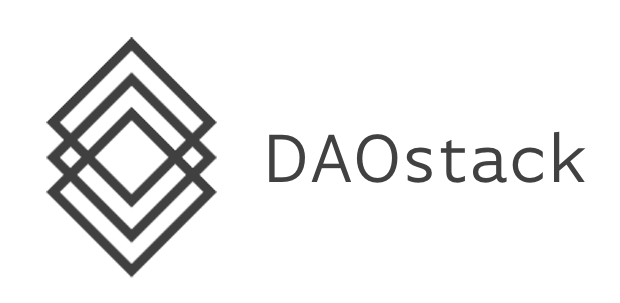
DAOstack
"Operating system for group intelligence"
DAOstack is a bit low-key compared to Aragon, but it has been steadily rising and was recently selected as the preferred platform for (non-derived) dxDAO. Unlike Aragon, DAOstack clearly values the decentralized decision-making mechanism, which focuses more on solving the inherent problems of large-scale decentralized decision making. Just as the two PhDs of theoretical physics (the CEO and chief architect for the Ph.D. in physics) expect, their theory is strong.
In the view of the DAOstack team, organizations with broad-based and decentralized (decentralized) decision-making processes are more resilient (this is an inherent advantage of DAO), but decision-making methods based on unrestricted sequence proposals (pass/fail) are scaled up. Expanding to a large number of participants and proposals can lead to cognitive burdens that are too heavy to achieve. On the one hand, there are a large number of proposals, and it is difficult for participants to know which proposals are most worthy of attention. On the other hand, there are a large number of voters, and it is difficult to motivate participants to take time to consider proposals that may not be related to individuals. So for DAOstack, it doesn't make sense to "just put the organization in the blockchain" without trying to solve the problem of how these more basic people make group decisions.
DAOstack's most notable achievement is not in technology, but in its "holographic consensus" crypto-economic mechanism, which is the crown jewel of its crown – using a small number of participants to achieve effective and reliable approximation of group decisions (holograms are an image, each of which Each section contains all the information in its entirety). The mechanism's role is to motivate a “predictor” network to bet on whether a proposal will pass; then use that prediction (and many other rules) to decide whether to emphasize the proposal and to modify the number of people required to pass the proposal (eg A highly promoted proposal may require only a small total number of votes to approve.) If the holographic consensus works well in an organization, it can be extended to any number of proposals and participants without sacrificing decision speed or quality.
The DAOstack team believes that attention is one of the most fundamental challenges facing humanity in the 21st century. When others just wrote this idea, the team has at least proposed some solutions. For the DAOstack team, the holographic consensus mechanism is what is needed to unlock a high-performance, decentralized organization. However, how this ambitious mechanism works is still to be tested, especially since the mechanism is based on the assumption that the predictor and the voters are independent ("you cannot buy a decision, but you can buy it into consideration"). It is conceivable that voters may be predicted to “shake”, especially when the forecaster appears as an authoritative expert. If this line proves to be too fine, the approximation may no longer be reliable, which would threaten the project's core commitment.
03 Colony
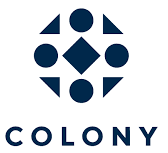
Colony
"Collaboration platform for open organizations"
Unlike Aragon and DAOstack, which focus on voting-driven organizational management. Colony (my employer, forgive me for being biased). Choosing the day-to-day focus on organizational operations, Colony focuses on minimizing the need to vote in daily operations, using “no licenses” as a battle slogan, people only need to focus Do things well (tasks are done) and commit to the future of the global digital workforce.
Although both Colony and DAOstack have empowered decentralized organizations as self-evident goals, the methods they create are, to some extent, vertically intersecting. DAOstack accelerates the discretization decision process through holographic consensus to achieve large-scale decision making. Colony's scale is realized through the asynchronous process of continuous financial decision-making (using a domain tree similar to the organization chart), allowing different areas of the organization to be relatively autonomous. Conduct business.
Technically, Conoly's greatest achievement is the use of time to achieve a "no license" series of resource allocation mechanisms. Time plays a role in the group in two key ways: the reputation gained is decayed over time (achieved through the out-of-chain reputation mining process), and funds are continuously distributed over time (as opposed to discrete proposals being passed or not). The greater the reputation that supports a proposal, the faster it gets funding, but at the same time, even people with low reputations can slowly get resources. The acquisition of reputation is job-driven (as opposed to the distribution of reputation based on the proposal's adoption), which makes reputation a vehicle for market information (very similar to the price function).
In addition, Colony skillfully combines time mechanics into organizational operations to make the organization more dynamic, and the organization becomes an entity of individual interaction. This means that resources on a Colony organization are always dynamic, without the need to synchronize work to overcome lazy static objects (for example, through traditional voting processes), so critical interactions become resource flows that affect time. Interaction.
Scholars engaged in organizational design are often excited about the Colony project: the use of a work-driven, time-decreasing reputation in financing decisions is expected to bring top-down levels (experienced leaders have a huge impact) and organizational boundaries. The best independent decision making (using knowledge tailored to local conditions). However, what remains to be seen is whether the organization can still effectively achieve the collective goals in the absence of central coordination, and which types of organizations have a competitive advantage?
Colony uses the image of the ant colony as its patron saint. In this group image, each ant is doing his own work independently, and they each do not know that they are engaged in an amazing collective undertaking with their companions. Colony hopes that its mechanism will help humans to imitate the consensus-active process that evolution has left for ants; however, as some critics have said, people's acceptance of novelty is usually limited (only a little bit gradual acceptance). In several projects, Colony is the only project that has not yet released the main network (but will be released soon), and Colony has many promises to prove.
04 Moloch
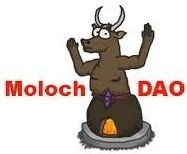
Moloch
"Pure machine heart"
Moloch is the youngest project currently discussed in the article, which was founded by Ethereum's romantic hero Ameen Soleimani, which has suddenly emerged in recent months and has generated tremendous appeal. Unlike other projects, such as Aragon's starting point is to get rid of bad government, DAOstack and Colony's starting point is to improve the dysfunction of human organizations. Moloch is based on solid rationalism and encryption economy, and its starting point is to solve the decentralized organization. Pain point – Committed to using the "DAO" approach to solve the problem of collaboration failure.
Moloch can be described simply as an experiment of coordination mechanisms, seeking to create “minimum feasible processes” that allow people to share shared resources for a common goal while actively minimizing the attack or laissez-faire of bad factors (from technology and society). on).
Technically, Moloch achieves this in two ways, both of which skillfully combine the technical and social layers. The first is to use time to create a "track". The proposal enters the decision-making process in sequence on the timer. All participants' attention is focused on a collective decision within a certain period of time, thereby preventing malicious participants from trying to use many Decisions overwhelm all other participants. In addition, the decision itself is subject to similar restrictions: each proposal includes a certain amount of tokens and borrows a certain amount of reputation value (voting rights). Participants who lack a reputation value can use the tokens, reputation values, and tokens to use the weights in the decision making process. Moloch does not stick to any way by creating a mechanism that focuses on a single goal, so there seems to be a way to get things done.
The second technical achievement is an innovation mechanism around “unsatisfactory quit”, in which participants can opt out (with their resources) if they are not satisfied with their colleagues' decisions. This initiative can curb malicious behavior and prevent social pressure on participants to consistently align with organizational goals.
Thanks to the convenience and security of participation, plus the “smart” cultural genes of the Moloch team – with members of the Ethereum’s heavyweights Vitalik and Joe Lubin, Moloch is now the most watched DAO organization, but The author seems to be an unresolved question for Moloch about whether its highly specific and limited interaction/connection methods are sufficient to coordinate to support the ambitious goals they set for themselves. At present, Moloch seems to see more of itself as an improvement to the existing grants committee, rather than the basis of the new organization's operations – how far the Moloch mechanism can go is still to be seen.
One thing that cannot be ignored is that Moloch can be seen as a reputation system that is determined by each member (not by the chaebol), in which influential members can assign influence to new members, and reputation It can be converted into money. Since the reputation system is an important part of a more complex system, it is likely that Moloch can become an important part of many other applications.
summary
This article provides a brief overview of the four Ethernet DAO projects and attempts to understand the basic ideas and significant technological innovations that form the basis of their respective values. What is exciting is that each project has substantial achievements, but what assumptions will be proven (reasonable) in the future? let us wait and see.
We will continue to update Blocking; if you have any questions or suggestions, please contact us!
Was this article helpful?
93 out of 132 found this helpful
Related articles
- The size of the crypto assets increased from 926 million to 2.7 billion, and the rate of return exceeded 100%. The grayscale report indicates that the funds are in large quantities.
- Want to get the blockchain out of the chain of time? A brief history of the time to read the blockchain together
- QKL123 market analysis | Market rebound is weak, hope that "Golden September and Silver 10" (0830)
- Japanese financial giant SBI Cheng Ruibo publicity ambassador? Plan to send XRP to shareholders
- Bitcoin handling fees have fallen by 88% compared to December 2017. Is the expansion rate significant or the transaction less?
- Polkadot reveals the truth, Gavin Wood explains Kusama experimental network
- Hero Post: Wuzhen Babbitt Accelerator Potential Project DemoDay, waiting for nothing

